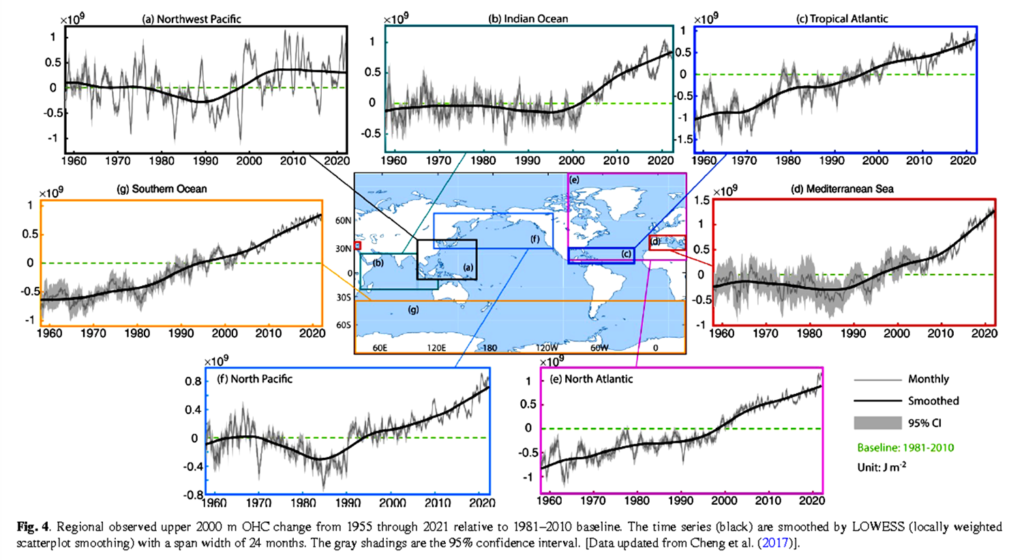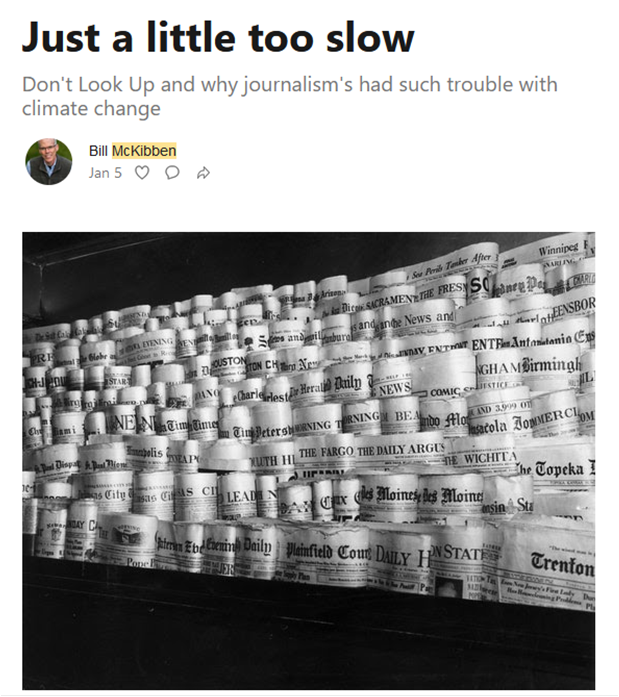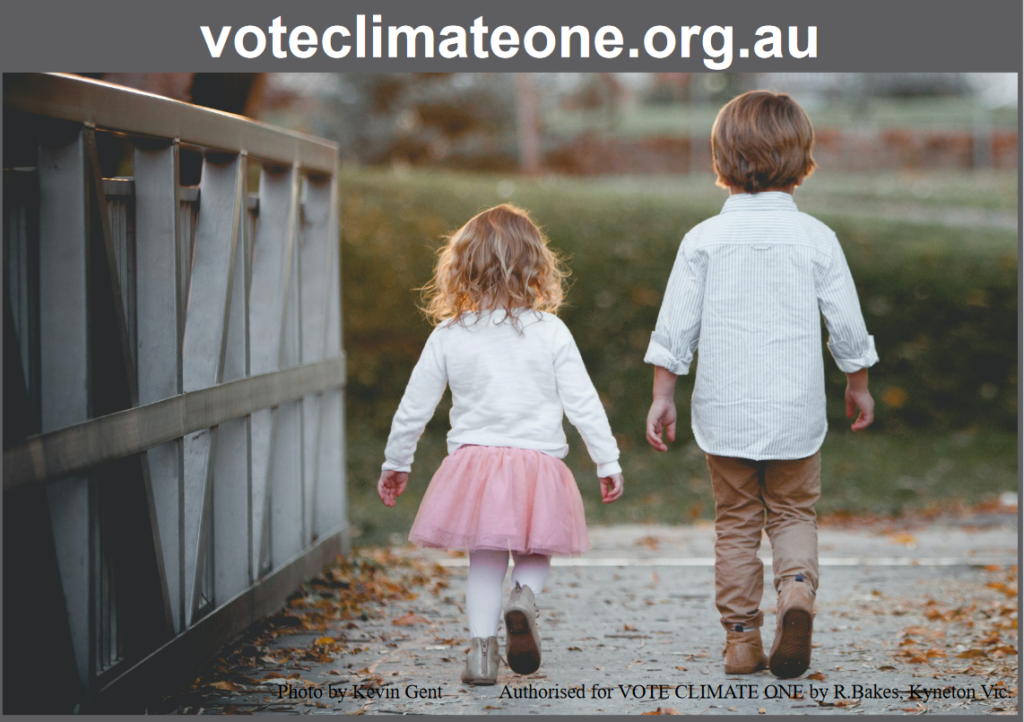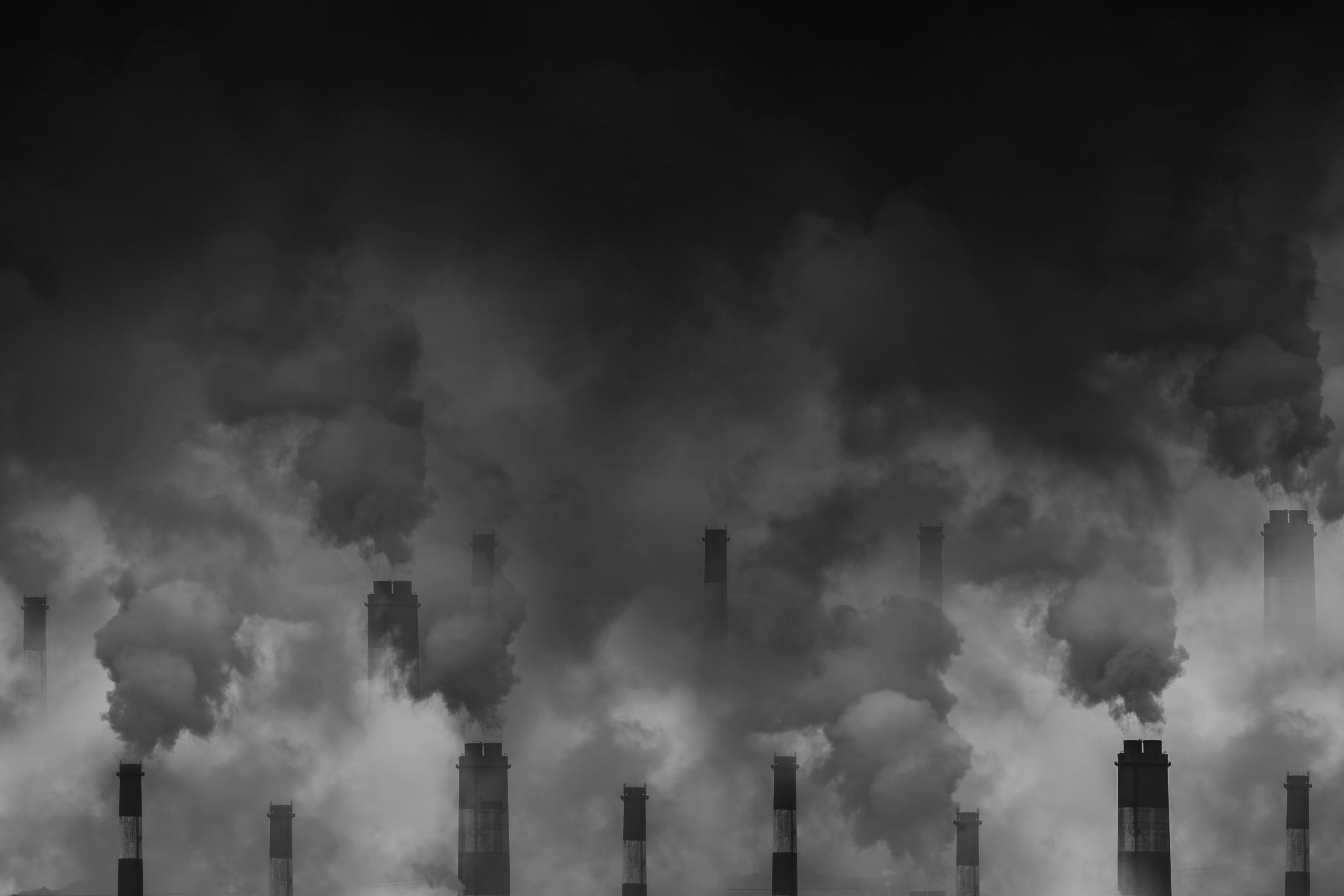Lots of NB4 climate events in this list
Things are getting worse, but we have seen nothing yet if we don’t stop and reverse the inexorable increase in global warming. “NB4” is an acronym for ‘never before’.
Things are getting worse, but we have seen nothing yet if we don’t stop and reverse the inexorable increase in global warming. “NB4” is an acronym for ‘never before’.
As the world warms, oceans store an ever more solar energy to increase global ocean heating and polar ice melting.
As the following article explains, thanks to the continuing rise in the greenhouse effect caused by the continuing rise in concentrations of CO₂ and methane, our planet continues to capture more solar heat that it can radiate away to space. Some of this excess increases air temperatures. However, most of the excess solar energy goes into ocean heating. Hot oceans heat Earth. The warmer water can melt polar ice covers and heat can be stored for slow release into the terrestrial environment and atmosphere over many years.

by Lijing, et al., 11/01/2022 in
Advances in Atmospheric Sciences
Abstract: The increased concentration of greenhouse gases in the atmosphere from human activities traps heat within the climate system and increases ocean heat content (OHC). Here, we provide the first analysis of recent OHC changes through 2021 from two international groups. The world ocean, in 2021, was the hottest ever recorded by humans, and the 2021 annual OHC value is even higher than last year’s record value…. The long-term ocean warming is larger in the Atlantic and Southern Oceans than in other regions and is mainly attributed, via climate model simulations, to an increase in anthropogenic greenhouse gas concentrations. The year-to-year variation of OHC is primarily tied to the El Niño-Southern Oscillation (ENSO). In the seven maritime domains of the Indian, Tropical Atlantic, North Atlantic, Northwest Pacific, North Pacific, Southern oceans, and the Mediterranean Sea, robust warming is observed but with distinct inter-annual to decadal variability. Four out of seven domains showed record-high heat content in 2021. The anomalous global and regional ocean warming established in this study should be incorporated into climate risk assessments, adaptation, and mitigation.
Read the complete article….
The accumulating heat in the ocean serves as a source of positive feedback to drive global temperatures even higher.
In other words, even without an annual record high air temperature, the process of global warming is accelerating and becoming progressively more difficult to stop and reverse. Unless we mobilize and act soon and vigorously to resolve the climate crisis, enough solar energy will be captured to ensure that the warming process continues. Even if we stop all human carbon emissions the warming will be driven by positive feedbacks from the warm oceans. Beyond stopping human emissions we need to deploy global geoengineering projects. First to capture and sequester greenhouse gases (e.g., by fertilizing the ocean deserts and farming phytoplankton together with ecosystems of plankton eaters able to send much of the carbon fixed by the algae to the bottom sediments of the oceans in the form of feces and dead bodies). And, secondly, to help the Earth reflect more solar heat back to space (e.g., by making the atmosphere more reflective with aerosols such as calcium carbonate).
Australia’s current COALition Government in Canberra is controlled by Captain Humbug (i.e., Scotty from Marketing) and his fellow puppets and clowns of the fossil fuel special interests. They have been working for years to subsidize and protect their puppet masters’ industry from being shut down or even being inconvenienced by actions against global warming. If we are to act effectively and swiftly enough to have any hope of stopping and reversing global warming we need to replace all of the special interests’ clowns and puppets by voting for people in their electorates who understand the currently escalating climate emergency and will put action to resolve the crisis as their highest priority in Parliament. Otherwise, we will have little chance to avoid the global mass extinction that will ensue if we don’t act.
Vote Climate One’s Traffic Light Voting Guide won’t tell you who to vote for, but it will help you avoid voting for anyone whose preferences are likely to flow to the COALition and their allies. Also, if you think our approach here is a useful one, please consider joining with us to become a Climate Hero.
Amongst many other growing perils resulting from global warming, as long as we allow our only Earth to go on warming urban firestorms will become more frequent, fiercer, and deadlier. Many of Australia’s close packed and leafy suburbs would also be susceptible to this kind of urban firestorm.
We face an existential crisis of our own making. It threatens to exterminate the human species and most other complex life on our only planet. Yet, day after day, after day, …. the Australian daily press will print multiple pages with nothing but news about the ‘Covid crisis’. And this doesn’t include long articles on the travails of a multi-millionaire anti-vaxer tennis star not being allowed to play his usually tantrum punctuated game at the Australian Open.
At it’s worst, even if nothing is done to minimize its effects, Covid would only kill 1 to 5% of the population. The 1918 ‘Spanish’ flu pandemic (see Wikipedia’s List of Epidemics) killed about this many people. Similarly, 100 years later the Covid Pandemic would be hardly noticed as a minor ripple in human history. Even the Black Death around 1350 that may have killed 50% of all humans at the time had no particularly detrimental consequences on the success of our species.
Today, the ultra-conservative Intergovernmental Panel on Climate Change forecasts utterly dire consequences for humanity and our biosphere if we don’t solve the climate crisis. If we fail here, there will be no human history at all, not just a minor blip! Yet the Press and politicians ignore the climate emergency Surely, this is the crisis that the press should be covering every day.

Journalism is constructed around finding something new. (I think that’s why they’re called newspapers). Which is a problem when it comes to the climate crisis. In geological terms, we are speeding toward the abyss—we’re pouring carbon into the atmosphere hundreds and thousands of times faster than during the volcanic outpourings that marked the previous great extinction events in earth’s history. But in journalistic terms, it happens just a little too slowly to quite register—climate change today is pretty much the same as climate change yesterday and tomorrow. Over a decade or two it will profoundly change the planet, but a decade is not a unit that really registers for TV, much less Twitter. The climate crisis is at all times the most important thing happening on earth, by far, but there’s rarely a twenty-four-hour period when, by the standards we’re used to, it’s the most important thing happening that particular day. It is inexorable, and inexorability is hard for journalists to capture.
…
And so, even though there’s finally skilled and deep coverage of the issue in some corners of the press (I think over the last five years the Times and the Post have done a better job of covering global warming than any other subject, with one remarkable reporting job after another), its scale—the fact that it threatens everything we know and hold dear—hasn’t sunk in. It requires repetition, constant reiteration of the same small set of facts: the planet is heating rapidly, cheap solar and windpower can slow it down, these are being blocked by vested interest. But repetition and constant reiteration are precisely what reporters and editors don’t like doing, hence the constant search for a “new angle.” I follow, for instance, the Twitter feed of Terry Hughes, the Australian marine scientist who has done more than anyone to chart the ongoing realtime destruction of the Great Barrier Reef. If journalism worked better, that destruction—over the course of a very few years, of the largest living structure on the planet—would be a compelling story. But instead, to his constant and correct exasperation, absurd updates about, say, 3-D printers producing new corals help take the edge off the tragedy. They get attention simply because they’re new; the mass death of an enormous ecosystem is the same story as before.
McKibben nails the issues where the 4th Estate (journalism) is concerned, but says nothing (here) about how the press’s selective inattention helps serve the special interests of the patrons and puppet-masters of the 2nd Estate (our government) over the rest of humanity. Unfortunately, here in Australia (and in many other areas of the world) we are cursed by the fact that many of our governing politicians are more concerned to support the selfish short-term special interests of their multi-billionaire patrons rather than the life-time interests of the people who elect them. By default, the press’s easy distraction by trivia, humbug, fake news, misrepresentation, and misdirection so easily created by the special interests and their government lackeys works to hide the real crisis that threatens our survival.
Stopping human greenhouse gas emissions on its own, will probably not be enough. To initiate actual cooling we will probably also have to actively remove carbon from the atmosphere and safely sequester it somewhere that it will not simply return to the atmosphere, and increase Earth’s ability to reflect excess solar energy away from the planet.
One of the few ways I can think of to remedy this situation is to take charge of the electoral process to purge our Parliament of puppets working for special interests and replace them with people we have good reasons to think will understand the real dangers that face us, take the climate emergency seriously as a first priority, and begin the work to mobilize society to begin effective actions to reverse global warming. In every electorate, Vote Climate One’s Traffic Light Voting Guide will help you direct your votes away from the puppets and towards people our research suggests will put climate action first where their parliamentary actions are concerned.
Absolutely everyone concerned in any way with our futures [humanity, ourselves, our families] on our fragile planet Earth must read Umair Haque’s latest essay linked below.
This man is a true spokesman for reason, science and politics. Here he explains what we need what we need to transform in order to continue living for long in this world. I also try to communicate these things, but Umair does it far better here than I have ever done.

We need three decades of transformation, but are we capable of it?
Read this article by Umair Haque at Eudaimonia & Co. Read more from Umair @Medium
Where Australia is concerned, the only area where I disagree with Umair’s sequence of priorities is that our first order of business must be to fix the political frameworks we live in that are specifically managed by Liberal/National party puppet governments that work across many levels to stop or delay us from doing anything that might inconvenience their masters representing special interests in the fossil fuel industry and their friends. Only then will we be able to devote our full interests to completing the moral and economic transformations that will see us progress towards solving the existential climate emergency. And there is very little time left (if any) to actually do that.
We all need to work together to achieve his prescription. Think seriously about what he says, and then lets get to work.
Our Vote Climate One guide provides a simple way for you to use our preferential voting system to vote for only those candidates who will support and work for immediate action on climate change. Our stoplight system doesn’t tell you who to vote for, but does flag those parties or individuals whose record suggests they are more likely to support the special interests and others trying to delay action than prioritize actions to deal with the existential climate emergency.
Absolutely everyone concerned in any way with our futures [humanity, ourselves, our families] on our fragile planet Earth must read Umair Haque’s latest essay linked below.
This man is a true spokesman for reason, science and politics. Here he explains what we need what we need to transform in order to continue living for long in this world. I also try to communicate these things, but Umair does it far better here than I havedone.

We need three decades of transformation, but are we capable of it?
Read this article by Umair Haque at Eudaimonia & Co. Read more from Umair @Medium
Where Australia is concerned, the only area where I disagree with Umair’s sequence of priorities is that our first order of business must be to fix the political frameworks we live in that are specifically managed by Liberal/National party puppet governments who work across many levels to stop or delay us from doing anything that might inconvenience their masters representing special interests in the fossil fuel industry and their friends. Only then will we be able to devote our full interests to completing the moral and economic transformations that will see us progress towards solving the existential climate emergency. And there is very little time left (if any) to actually do that.
We all need to work together to achieve his prescription. Think seriously about what he says, and then lets get to work.
Our Vote Climate One Traffic Light Voting System provides a simple way for you to use our preferential voting system to vote for only those candidates who will support and work for immediate action on climate change. Our stoplight system doesn’t tell you who to vote for, but does flag those parties or individuals whose record suggests they are more likely to support the special interests and others trying to delay action than prioritize actions to deal with the existential climate emergency.
If we can get to work soon on the issues that really matter, perhaps we will be able to leave our offspring with a hopeful future.

Michelle Grattan in the Guardian says, “Multiple doctors’ organisations, led by the Australian Medical Association, and a major farm lobby have called on the federal government to boost Australia’s climate change ambition, as pressure mounts on Scott Morrison and Barnaby Joyce to finalise a deal ahead of the Glasgow conference.”

Doctors and farmers turn up heat on Morrison ahead of Glasgow
Michelle Grattan in the Guardian (Aus.)
September 14, 2021
This pressure is still based on a dangerously ‘optimistic’ IPCC view of the ‘probable’ future. The IPCC view does not factor in the last two or three years of marked acceleration in NB4 extreme climate events or consider the likely consequences if the world is still warming past 2050 or 2100.
The recent crescendo of NB4 events, combined with a longer look into the future suggests that global warming is starting to ‘run away’ from our limited capacity to actually stop and reverse the warming. If we fail to do this, we are not just faced with some crop failures and an excessive number of heat-related deaths; but rather total collapse of our agricultural and social systems, and inevitable human extinction along with most other large and complex organisms sharing the planet with us.
We need immediate and sustained action to control and reverse global warming, and any politician not working to help achieve this should be immediately turfed out of office and replaced by someone who will work for us, rather than the fossil fuel special interests and their friends.
Our Vote Climate One guide provides a simple way for you to use our preferential voting system to vote for only those candidates who will support and work for immediate action on climate change. Our stoplight system doesn’t tell you who to vote for, but does flag those parties or individuals whose record suggests they are more likely to support the special interests and others trying to delay action than prioritize actions to deal with the existential climate emergency.